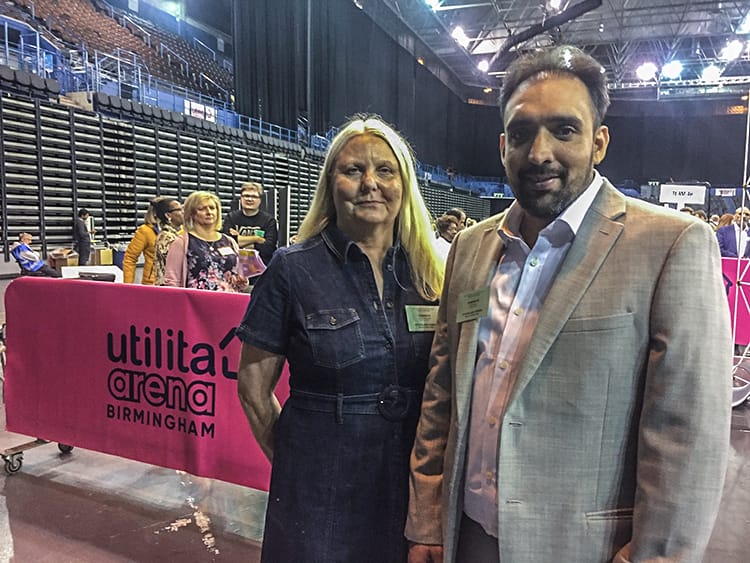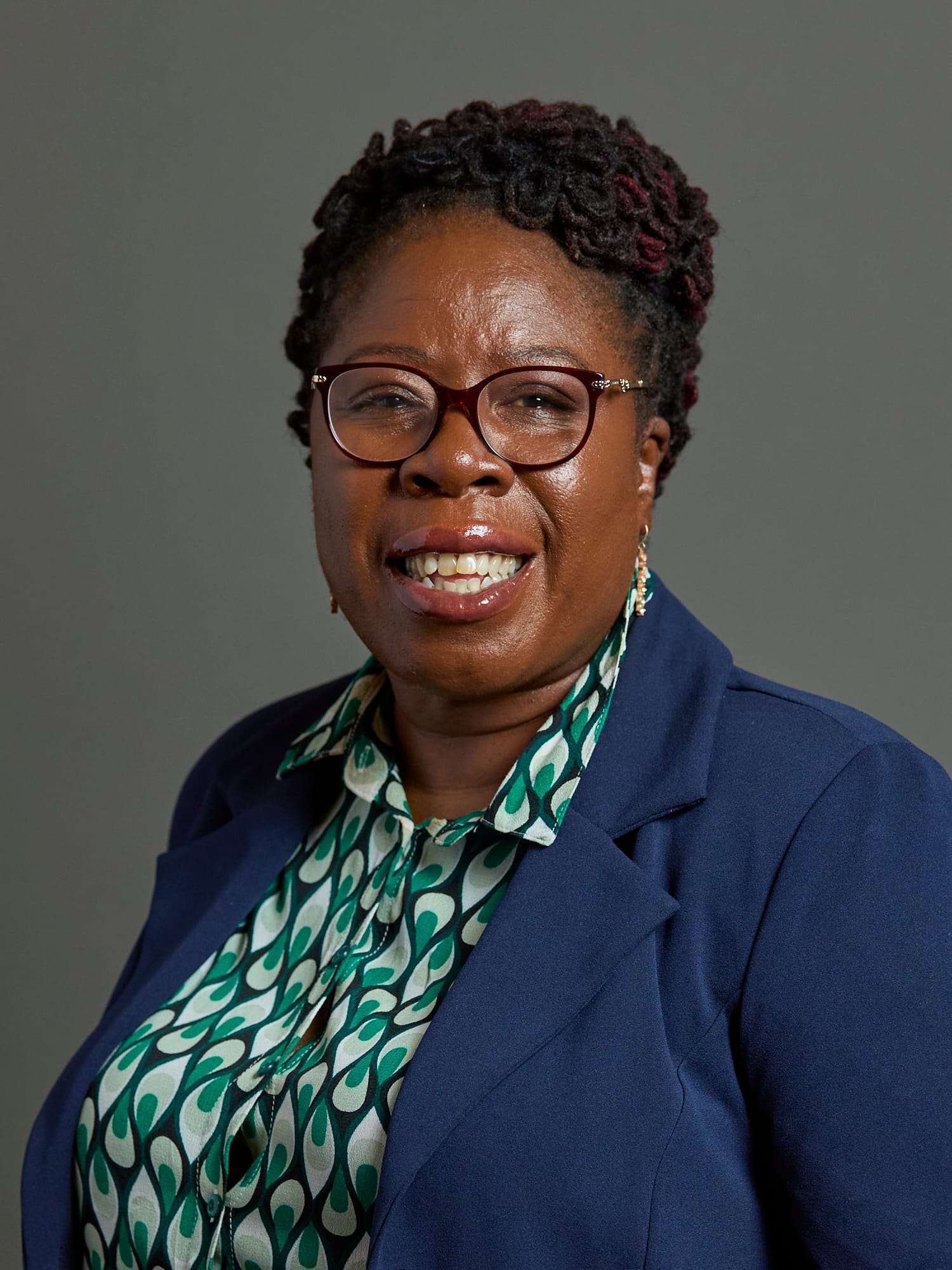Dear readers — no one likes rejection. But to be told you're simply not good enough to continue being a councillor, by the party you've been a lifelong member of, has got to hurt more than most. That's the situation Jane Jones, the former-Labour member for Stockland Green, has found herself in, along with 10 others who were unceremoniously axed by the party last month. They're still councillors for now, but they won't be standing on behalf of Labour at next year's election. Some have jumped ship and are now independents. Others are still deciding their next move.
While the party insists the cohort merely didn't pass their gruelling interviews, onlookers have highlighted the close links between those who made the cut and sitting politicians, prompting cries of cronyism. Jones herself thinks the party has become increasingly censorious and undemocratic. As she put it: "I didn't leave the Labour party. The Labour party left me." In today's story, Ed King speaks to Jane and fellow deselected member Barbara Dring, Labour insiders, and voters about the controversial cull. But first, your Brum in Brief.
Brum in Brief
⚖️ Aimee Betro, the American woman who attempted to shoot a man at point blank range in Yardley while wearing a niqab, has been found guilty of conspiracy to murder. The 45-year-old from Wisconsin aimed a handgun at Birmingham resident Sikander Ali, outside his home on the evening of 7 September 2019, a jury at Birmingham Crown Court heard. The would-be hit woman was part of a plot by father and son Mohammed Aslam, 59, and Mohammed Nabil Nazir, 31, to get their revenge on a family they had been feuding with. Ali managed to escape in his car when the weapon jammed but Betro later texted his father, Aslat Mahumad, to say: “Where are you hiding?” and “Stop playing hide and seek, you are lucky it jammed.” Read the full report at the Guardian.
💄 Birmingham is enjoying a “beauty shop boom” according to the BBC, ahead of luxury makeup behemoth Space NK opening its second largest UK store in the Bullring on Thursday. They will join French giant Sephora and Korean beauty brand Pureseoul, which both launched in the central Brum shopping centre last year. The beauty and personal care industry is rapidly expanding, making a direct contribution of £15.9bn to the UK economy last year, according to the British Beauty Council. Despite the high street’s post-pandemic struggle, beauty is doing well because “they've really focused on what consumers are looking for and they're offering something different,” explains Sarah Montano, professor of retail marketing at the University of Birmingham.
Meet the people who stop The Dispatch being sued
In two years of publishing fearless investigative journalism we've received many legal letters. But never once have we actually been taken to court - because we've always been certain our reporting is watertight. That's thanks to Reviewed & Cleared, our crack team of media lawyers. They have a deep understanding of issues like defamation and privacy, and work quickly and flexibly to identify issues and respond to legal threats. They're trusted by small players like us, and big beasts like Netflix and News UK (parent company of The Times), alike. To find out how they could help you, click below.
“I knew it was coming,” says Councillor Jane Jones. We’re sitting in a crowded bar just outside Erdington, bustling with Friday night fervour. Jones has represented Erdington’s Stockland Green ward since 2022 as one of two councillors. She wanted to add another four years to her docket, and was planning to stand in 2026’s local elections.
But in July, Jones, along with 10 other Birmingham Labour councillors — including her ward mate, Amar Khan — received the news they had failed their selection panels. The majority represent wards in the Perry Barr and Erdington constituencies in the north of the city, while three in the south were also blocked from running as Labour candidates in the next ballot. It’s the equivalent of being unceremoniously sacked.
Yet Jones says she knew it was coming.
“I’d put my head in a noose,” she tells me, fixing my gaze with a poker player’s steely glare. Then her expression softens. “I knew I was likely to be deselected and had an inkling of who would be replacing me […] but the decision to leave the party has, I’ll be honest, been traumatic.”

Jones is the first of the deselected councillors I’ve been able to get on the record. I’ve been phoning, texting, and door knocking for days. What I hear isn’t pretty, but no one wants to talk with my dictaphone switched on until Jones agrees to meet me. Walking into our assigned meeting spot, I am reminded of the scene in Goodfellas where Ray Liotta meets Robert DeNiro to discuss the fate of a garrulous FBI informer, both characters stifled by justified paranoia.
But Jones, the sort of person my grandma would have called a ‘straight shooter’, allows me to start scribbling quotes in my notebook.
“I’m not interested in climbing the greasy pole,” she says. “I just want to be a good councillor.”
Cronyism and corruption
“If you think that Birmingham is left vs right”, quips one Birmingham councillor, “it is more a case of integrity vs corruption”. They’re running through a list of complaints that didn’t manage to disqualify some candidates from being selected by Labour. Small Heath councillor, Saqib Khan, for example, managed to be picked again, despite a standards committee upholding complaints of bullying and harassment against him earlier this year.
The new system of selections was supposed to make Birmingham Labour less “dysfunctional”. That was the word used in a 2023 Birmingham Campaign Improvement Board (CIB) report to describe the city’s ruling Labour group. The investigation recommended that Labour's National Executive Committee should be in charge of selecting candidates to run on behalf of the party in future elections.
The idea was to challenge cronyism and corruption, while addressing accusations of misogyny and the clandestine consolidation of power within the local branches.
But as an elected Labour official from South Birmingham tells The Dispatch, constituents felt “left out” and “dissociated” over the recent selections and that they’d had their “rights taken away”.
A senior Birmingham Labour official disputes this to me, claiming that reports produced by branches and sent to selection panels ahead of candidate interviews, represent the voice of party members. But it’s true that no card-carrying Labour supporter can now directly vote for who they want to stand as a councillor. Instead, candidates are cherry picked by the party’s higher ups.
Questions have been raised and accusations made over why some candidates were deselected, and what the involvement was from some local MPs and local party executives.
And some of the names replacing candidates have clear links to Erdington MP Paulette Hamilton, with her daughter Keisha Hamilton now selected for the Holyhead Ward and Fayaz Khuhro, a case worker from her constituency office, now standing in Pype Hayes.

Hamilton’s communications manager, Mohammad Ashraf, will also see his sister-in-law, Shabrana Hussain, move from Sparkbrook and Balsall Heath East Ward to stand in Stockland Green, running alongside Derek Douglas, CEO of homelessness charity New Roots. Birmingham Live has reported Douglas is a “close friend” of Hamilton.
The Dispatch reached out to Hamilton’s constituency office for comment on these connections; we’ve yet to receive a response. A statement previously issued by her read: “While I'm naturally disappointed that some councillors were unsuccessful in the NEC selection process, I thank them for their service”.
The main takeaway from the dozen or so sources The Dispatch spoke to for this story, is that the NEC decision-making process is opaque. Deselected Labour councillors aren’t sure why they were cut; those who were selected don’t know what got them over the line.
Fourteen resignations of sitting Labour members have also accompanied the deselections, prompting musings about whether people were encouraged to jump before being pushed.
The Dispatch reached out to all sitting Labour councillors who have officially stepped down ahead of the recent announcements; only two replied. One-time Labour leader, Sir Albert Bore confirmed he was “not asked to stand down” and that his decision “was a personal one.” It was the same story for Shard End’s Cllr Ian Ward, who led the Council from 2017 to 2023, who said after being in office for three decades, he “wish[ed] to step down.”
Some sources I talk to have theories about how the current upheaval might tie into a potential challenge for the Birmingham Labour leader’s job once the dust settles in May next year. Others hint at considering bids for Parliament. A lot of these noises are being made, off record.
Birmingham deserves great journalism. You can help make it happen.
You're halfway there, the rest of the story is behind this paywall. Join the Dispatch for full access to local news that matters, just £8/month.
SubscribeAlready have an account? Sign In







